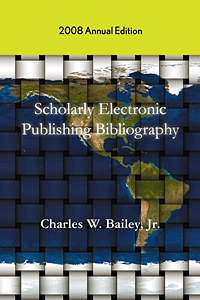The Duke University School of Law has launched the Duke Law Scholarship Repository.
Here's an excerpt from the announcement:
The Duke Law Scholarship Repository, launching online this week in partnership with BePress' Digital Commons, provides free, full-text access to more than 3,000 scholarly articles written by Duke Law faculty or published in Duke Law journals.
The repository offers a fresh presentation of Duke Law scholarship, but the idea of freely accessible legal scholarship and a commitment to open access to information has deep roots in both practice and theory at Duke Law School.
Under the leadership of Richard Danner, Duke Law's senior associate dean for information services and Archibald C. and Frances Fulk Rufty Research Professor of Law, the Law School became the first in the country to make all the articles published in its law journals — including back issues — freely accessible online in 1998. In addition, unlike most other law reviews, Duke's journals explicitly allow authors to post articles published in the journals without restriction on freely-accessible third party web sites, as well as on Internet sites under their own control.
By making scholarship as easily and widely accessible as possible, Duke does a service to the authors who publish in its journals, says James Boyle, William Neal Reynolds Professor of Law. "Imagine spending a year writing an article and discovering after you finished it that only someone with a sophisticated library or an expensive subscription could read it," he says. Duke's commitment to open access increases readership for authors, which include faculty from other schools as well as student scholars, and can contribute to higher citations for Duke-published work. "It's a huge benefit to both our students and to faculty authors," Boyle says.
In 2005, Duke Law furthered its commitment to open access by establishing an online archive of faculty scholarship, providing free access to the majority of articles published by Duke Law faculty. The contents of that archive are now the foundation of the Duke Law Scholarship Repository, which ultimately will include the text of lectures delivered at Duke Law, webcasts from scholarly presentations and conferences, publications of Duke Law's research centers, Duke Law student works, and more.

